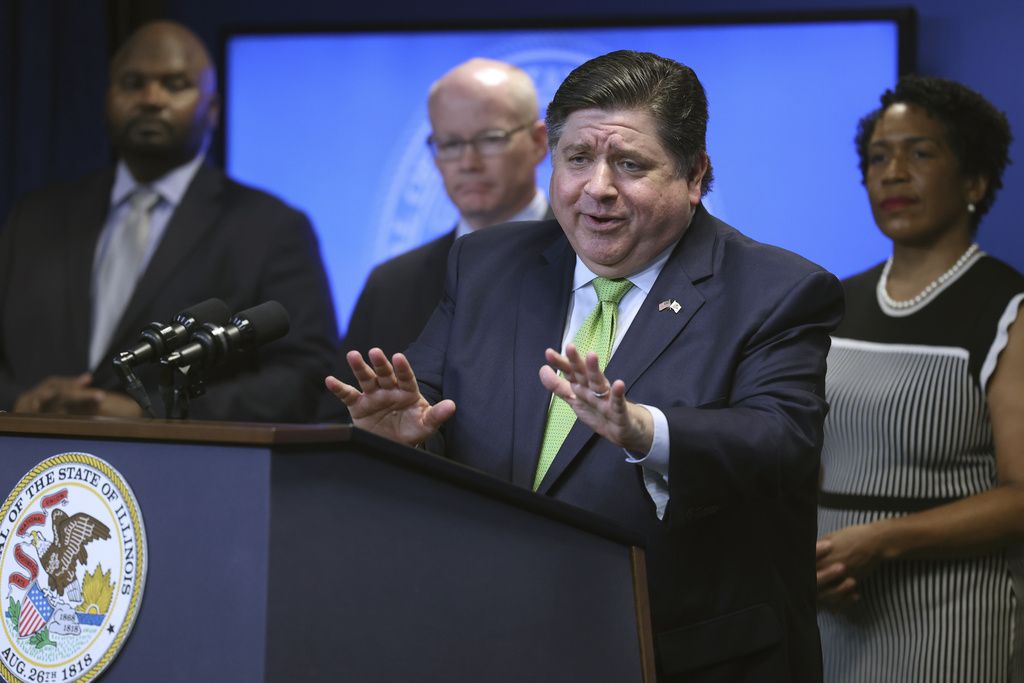

Gov. J.B. Pritzker (D-IL) signed the largest state budget in Illinois history on Wednesday.
The $53.1 billion budget is the sixth balanced budget passed by the governor, but it is also 32% higher than his budget in 2019.
The budget touts $350 million geared for K-12 education, in line with a 2017 education funding reform law, $100 million for other school programs, and $2.3 billion tucked away in the state’s rainy day fund. Pritzker also earmarked $182 million for services for migrant asylum-seekers and $440 million for healthcare care for noncitizens.
“We are on a trajectory of sustainable long-term growth, and this balanced budget boosts us further in the right direction,” Pritzker said at a Chicago news conference. “We achieved all this while putting money back in the pockets of everyday Illinoisans.”
From his own party, Pritzker garnered criticism that the budget was bloated. Democratic state Rep. Fred Crespo suggested a hiring freeze and across-the-board reductions to reduce the budget.
“And we came up with a billion dollars, and my understanding was that that wasn’t considered either,” Crespo said on the House floor last week.
Under the new budget, Pritzker is raising taxes by $750 million, including $725 million in sports betting and video gambling and also an increase in gas taxes.
The budget raises $526 million by putting a cap on tax-deductible business losses at $500,000 and a $1,000 per month cap on the amount retail stores can keep for their expenses, which brings the state an additional $101 million, per the Associated Press.
The budget will also gain $235 million from increases in sports betting and video gambling taxes.
CLICK HERE TO READ MORE FROM THE WASHINGTON EXAMINER
At the same time, Pritzker eliminated the 1% sales tax on groceries and created a child tax credit offering up to $300 for households with children under 12.
“You’re going to continue to see we are investing not just for today, not just ensuring that we have balanced budgets, ensuring that we are keeping the trains on time and keeping the lights on. But we’re making investments for the future,” House Speaker Pro Tempore Jehan Gordon-Booth, a Democrat who negotiated the budget, said.






